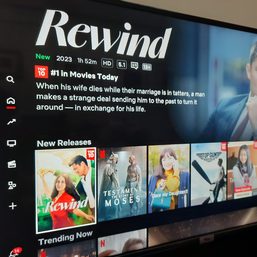SUMMARY
This is AI generated summarization, which may have errors. For context, always refer to the full article.
Yes, I realize the irony. You are reading a piece entitled “The offline rebellion” online. But nothing is pure, and if you can spare the time, maybe we can start to see what it would mean to be an offline rebel together.
This week, my teammates shared with me what apparently was big on social media, particularly Twitter. I am not on any social media platform so I get my doses of it from real world conversations over lunch with people who mostly grew up with a social media account. That way, I get to know what social media is up to, and I also get insights from people when they are already offline – at least at that time of reflective conversation, when they have had some time to think and see what they thought of the whole thing.
The most recent supernova in the Twitter universe was apparently about the impressionist kind of starry night. It was about Van Gogh and how a certain tweet launched a thousand-fleet armada of points and counterpoints. At first, I said, hmmm, then that is good, right? That we are having conversations online about art? But they said not really, because the tweets have largely swung into vicious attacks on personal character and intentions.
I saw the original tweet that was supposed to have started all these and imagined it being said by a friend over pasta in a neighborhood dining area. I would have asked her some questions, probably refer to a similar experience I had before that made me reconsider how I viewed myself and that I may be wrong about something I felt so passionately right about. Most likely, we would both have ended up less sure about how right we are all the time about what we think, and thus more enlightened.
You may be wondering by now why I did not bother to restate the original tweet that launched the Van Gogh supernova. That’s because this could apply to so many things that are also trending in the way that particular tweet did: a quick thought in your own head made its way into the planet, and then you were not ready when the entire planet answered back.
Of course you are not ready. No human brain is equipped to handle hundreds of thousands of replies to a single thought. Our brains did not evolve that way. Having them in your computer does not mean you can process them in your own head. But the funny thing is, people do not realize that. Studies have shown that people think that their computers and the universe of things that are searchable are part of their own brains.
But behold, this amazing, super expanded brain that you think you have now because of the internet is driven by persuasive technology that runs on incessant interruptions. Around the world, in persuasion labs in tech companies that develop apps, they are all on a parallel quest to interrupt your attention. This includes even what we consider the most basic tool in our current modern life – e-mails and messaging apps.
In Humane Technology’s recent podcast entitled “Undivided Attention,” I was again made aware not just about the interruptions that persuasive technology makes in my everyday life, but also the self-interruptions that they have given rise to. It was interesting to know that the shot length in TV has shrunk from 13 seconds to 3 and a half seconds by 2010. This is probably even shorter for online materials. This does not only mean that sustained attention is a rare gem. It also reboots you so often that you have to spend 25 minutes getting back your groove in doing your original work.
In the podcast, Tristan Harris spoke to Gloria Mark, a researcher on interruptions, and she spoke about a study where they deliberately decreased the external interruptions from being online. They found that when they did, people started, on their own, to seek these interruptions themselves. They had gotten used to being interrupted and were doing it to themselves!
A study that came out this year said that global attention span – which should reflect the time we devote mining collective wisdom – is rapidly decreasing. Trending topics worldwide last only an average of 11.9 hours in 2016 from 17.5 in 2013. This means that it does not even matter anymore whether we are concerned and talking about wars, genocide, slavery, and ethnic cleansing which cut right through our common humanity. They will fall off the ends of Twitter earth in about 11.9 hours as people starve, get killed, or slump in deep desperation. Trending has become more important than living.
Vincent Van Gogh was, by circumstance of his birth and time, an offline rebel. But, master painter, I think the iconic song about you by Don McLean is still on the mark – maybe “this world was never meant for one as beautiful as…you.” – Rappler.com
Maria Isabel Garcia is a science writer. She has written two books, “Science Solitaire” and “Twenty One Grams of Spirit and Seven Ounces of Desire.” You can reach her at sciencesolitaire@gmail.com.
Add a comment
How does this make you feel?















There are no comments yet. Add your comment to start the conversation.